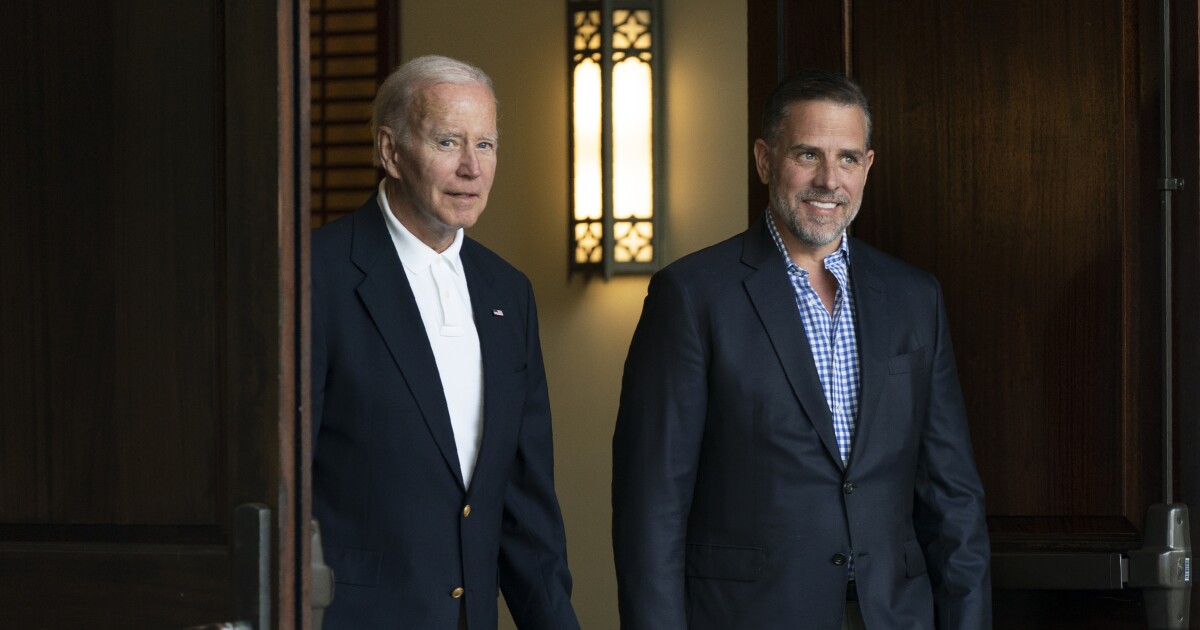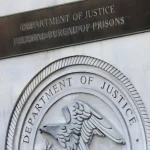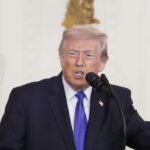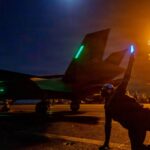

A Chinese military company that Hunter Biden’s investment firm teamed up with is now assisting the Russian air force in the war in Ukraine.
The BHR Partners investment firm, which counted President Joe Biden’s son as a board member and 10% stakeholder, worked with AVIC Automotive, a subsidiary of the Chinese state-owned Aviation Industry Corporation of China, to purchase Michigan-based Henniges Automotive in September 2015.
HUNTER BIDEN TEAMED UP WITH CHINESE MILITARY COMPANY KNOWN TO BE NATIONAL SECURITY THREAT
The Wall Street Journal reported in February 2023 that AVIC subsidiary AVIC International Holding Corporation had shipped “$1.2 million worth of parts for Su-35 jet fighters” to sanctioned Russian defense conglomerate Rostec subsidiary Kret on Oct. 24, 2022. Although a number of Chinese companies have been sanctioned over Russia’s war in Ukraine, AVIC is not one of them. AVIC’s provision of Su-35 jet fighter parts to Russia is notable.
The Ukrainian military claimed in August 2022 that the Russians had lost roughly two dozen Su-35 jets during the war at that point. The Rand Corporation said in October 2022 that Russia needed to replace Su-35s lost in combat but that sanctions were hurting its ability to do so.
When Hunter Biden’s BHR teamed up with China’s AVIC in September 2015, it was already publicly known that AVIC was also teaming up with a number of Russian military companies, including Rostec, and that these Russian companies were being sanctioned related to Russia’s annexation of Crimea in early 2014. In November 2021, Hunter Biden lawyer Chris Clark told the New York Times that his client “no longer holds any interest, directly or indirectly, in either BHR or Skaneateles,” the LLC owned by Hunter Biden that held his 10% ownership stake in BHR. Clark declined to provide more clarity on this in 2022.
AVIC and Rostec reached an agreement on “strategic cooperation” in December 2014, with Rostec announcing possible “joint projects in aircraft, helicopter, and engine production.” Rostec said that “cooperation with Chinese partners is part of Rostec Corporation’s strategic plan” and that “we particularly value cooperation with AVIC.”
Rostec subsidiary Russian Helicopters announced in May 2015 that it had signed an agreement with AVIC “on creating an advanced heavy helicopter.” The agreement was signed by the two company CEOs at the Kremlin “in the presence of” Russian President Vladimir Putin and Chinese leader Xi Jinping. Rostec said the plan “has been an important component of Russian-Chinese collaboration.” AVIC leader Lin Zuoming said at the time that the joint effort “will have a positive influence on the development of China’s helicopter industry.”
Despite AVIC’s close relationship with sanctioned Russian defense contractors, BHR nevertheless said in September 2015 that it was “delighted to announce” the purchase of Henniges for $600 million in collaboration with AVIC.
Just over a year later, six subsidiaries of Rostec’s Kret were sanctioned by the Commerce Department in December 2016 to punish Russia “for violating international law and fueling the conflict in eastern Ukraine.”
CLICK HERE TO READ MORE FROM THE WASHINGTON EXAMINER
Seven AVIC subsidiaries were sanctioned in December 2020 when the U.S. government determined they were “military end users.” Rostec was sanctioned again by the Treasury Department in June 2022 following Russia’s further invasion of Ukraine that year, with the U.S. saying the sanctions “will weaken Russia’s ability to continue its aerial assault on Ukraine.”
The Biden administration has repeatedly hinted that China is considering providing Russia with significant lethal support for the war, but congressional Republicans say the White House needs to take significant steps to push back on the rhetorical, economic, and nonlethal military support China is already providing.






